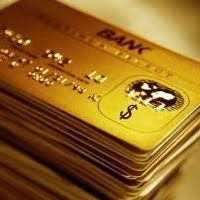Discounts for Using Cash
 The Wall Street Journal's Brett Arends recently produced a great article titled "The Death of The Rewards Card."
The Wall Street Journal's Brett Arends recently produced a great article titled "The Death of The Rewards Card."As you probably already know, when you use a credit card to pay for a purchase, a small cut goes to the bank that issued your card. An even smaller cut goes to the "middle-man" bank, the bank that handles the processing. Invariably, these fees are paid by the retailer. When dealing with volume, these small fees add up fast. In fact, many retailers complain that these fees are so burdensome that they can't afford to hire new workers, and help this limping economy get back to prosperity.
With credit card banks like American Express and Discover, the processing is not handled by another party (no middle-man.) This doesn't mean that transactions handled by these banks are cheaper for the merchant. In fact, if you ask a merchant if the fees associated with accepting American Express are higher than those associated with accepting Visa or MasterCard, the merchant is likely to tell you: yes, they are. In my own real world experience, however, I found that accepting American Express cost me about the same. That's because my transaction volume was very low, and the middle-man bank I was using for Visa and MasterCard payments was charging me a hefty fee for keeping my merchant account active.
I canceled my merchant account 2 years ago. Got too expensive for my meager volume. I now use PayPal for credit card payments, as it's very convenient, and the fees are manageable.
OK, enough with the primer. Onto this article by Mr. Arends.
Legally, all types of merchants who accept credit cards, from gas station owners to web designers, have always had the freedom to offer a discount for paying with cash instead of a credit card, thus eliminating the fees associated with accepting credit cards.
Most merchants, however, were not in the habit of pursuing this money-saving option because the payment networks used "restrictions" to discourage the practice.
The Dodd–Frank Wall Street Reform and Consumer Protection Act(1), which is now law, eliminates those "restrictions" and gives retailers true freedom to offer discounts for using cash over a credit card.
Mr. Arends contends that this could spell the end for the rewards credit card. Mr. Arends predicts that consumers will eschew using a rewards card and take the discount for using cash instead. Bottom line: credit-card rewards are great, but cash is better. Mr. Arends' thesis statement goes something like this:
"...Plastic is so over. The new cash is, er, cash...."I totally disagree.
My position:
- Consumers like using cards. In my opinion, most people would not be comfortable carrying around wads of cash so as to enjoy discounts offered by retailers and other merchants. Using credit cards is much safer, and convenient. Would you be comfortable carrying $1,800 in cash when you go to buy that new flat-screen TV you've always wanted? I don't think so. I know I wouldn't. What if I was in NYC visiting family and fell asleep in a super crowded subway car (I used to doze off on the subway all the time when I lived there)? I might wake up and find that my cash has been "borrowed." On the other hand, if I accidentally dropped my credit card on a subway train, all I'd have to do is make a quick, toll-free call to my credit-card bank, and all would be fine.
- Has Mr. Arends forgotten about purchase protection? How much protection do you get with cash? Zero. Recently, someone tried to cheat me by selling me a broken laptop LCD backlight inverter, which was supposed to be brand new. I tried to get the problem resolved but the retailer didn't answer his phone, and didn't respond to emails. Solution was easy: let my credit-card bank deal with it. Got my money back.
However, I do agree with the author's statement, that:
"...Credit cards are bad for your wealth..."No doubt, this is true for anyone who carries even a small balance from month-to-month, and pays interest on it. But for those who know how to use credit wisely, credit cards are...well...cool.
Labels: cash, dodd-frank_financial_reform, interchange_fees, merchant_accounts, rewards
|
--> www.FedPrimeRate.com Privacy Policy <--
> SITEMAP < |



